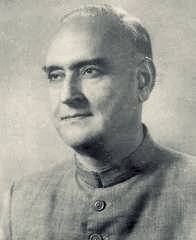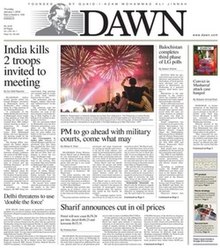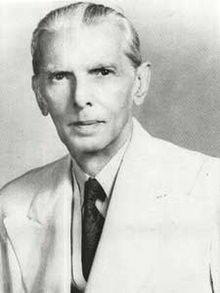Tahir Mirza was a senior Pakistani journalist and former editor of Dawn, Pakistan's oldest and most widely circulated English-language newspaper. He became resident editor of this newspaper in Lahore in 1994 and worked as a correspondent in Washington, DC, before becoming editor of the newspaper in Karachi after the retirement of its noted editor Ahmed Ali Khan in 2003.

All Pakistan Newspapers Society (APNS) is an organization of major Pakistani newspapers, their publishers, companies, and corporations. It includes the Jang Group of Newspapers, Dawn Group of Newspapers, and Nawa-i-Waqt Group of Newspapers.

Zaib-un-Nissa Hamidullah was a Pakistani writer and journalist. She was a pioneer of Pakistani literature and journalism in English, and also a pioneer of feminism in Pakistan. She was Pakistan's first female editor and publisher, and the country's first female columnist writing in English. Zaibunnisa Street in Karachi was named after her.

Mazar-e-Quaid, also known as Jinnah Mausoleum or the National Mausoleum, is the final resting place of Muhammad Ali Jinnah, the founder of Pakistan. Designed in a 1960s modernist style, it was completed in 1971, and is an iconic symbol of Karachi as well as one of the most popular tourist sites in the city. The mausoleum complex also contains the tomb of Jinnah's sister, Māder-e Millat Fatima Jinnah, as well as those of Liaquat Ali Khan and Nurul Amin, the first and eighth Prime Ministers of Pakistan respectively. The tomb of Sardar Abdur Rab Nishtar, a stalwart of the Muslim League from Peshawar, is also located there.
Altaf Hussain Gauhar Janjua was a civil servant, journalist, poet, and writer from Pakistan, close to the country’s first military dictator Ayub Khan to the point his detractors called him Khan’s Svengali and Goebbels.
Altaf Husain was an educationist, journalist, and Pakistan Movement activist. He is noted as one of the pioneers of print journalism in Pakistan and was the founding editor and the first editor-in-chief of English-language newspaper, Dawn, which he edited for almost twenty years.
The Star was an English-language evening newspaper in Pakistan that ceased publication in 2005.

Abdullah Hussain Haroon is a Pakistani politician, and businessman who served as Foreign Minister of Pakistan in the Mulk caretaker ministry. He previously served as the Speaker of Sindh Assembly and Pakistan Ambassador to the United Nations from September 2008 to October 2012.
Muhammad Yusuf Abdullah Haroon was a Pakistani businessman and politician who served as the 5th Governor of West Pakistan and 3rd Chief Minister of Sindh.
Mazhar Abbas is a Pakistani journalist currently working with Geo News as Senior Analyst and columnist for Daily Jang. Previously he was the deputy director of ARY News Television, the bilingual news channel in Pakistan, and the secretary general of the Pakistan Federal Union of Journalists. He is the brother of Zaffar Abbas, the editor of Dawn, and Azhar Abbas (journalist), the managing director of Geo News.

Mahmud Husain Khan was a Pakistani historian, educationist, and politician, known for his role in the Pakistan Movement, and for pioneering the study of social sciences. He served as Minister for Kashmir Affairs from 1951 to 1953 and Minister for Education in 1953, as well as minister of state in Pakistan's first cabinet under Prime Minister Liaquat Ali Khan.
Saulat Mirza, was a Pakistani convicted murderer, target killer, and a political activist of the Muttahida Qaumi Movement (MQM).
Abbas Nasir is Pakistani journalist and former editor of Pakistan's English language daily DAWN. Previously he was the head of the BBC Urdu Service, where he has been appointed as Executive Editor for the Asia and the Pacific Region at BBC World Service.
Azhar Abbas is a senior Pakistani journalist and the current managing director of Geo News.
Ahmad Ali Khan was a veteran Pakistani journalist who was also the editor of Dawn newspaper for 28 years.











